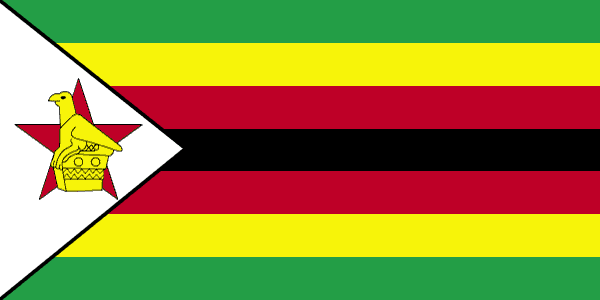Zimbabwe’s Independence Day commemorations recall a time on 18 April 1980 when the country was filled with the hope of a new nation. Since then, its short history has been turbulent and this year is no exception, with discord over diamond money taking centre stage.
This month, Zimbabwe’s Minister of Mines and Mining Development, Walter Chidhakwa, reportedly acknowledged that ‘Zimbabweans had not really got what they expected’ in terms of proceeds from Marange, the site of the country’s most recent diamond find. No one could accuse the Minister of exaggerating.
Indeed, the puzzle of who is getting what from Marange is now so mystifying it even appears to be confusing the Zimbabwean government.
Zimbabwe’s diamond companies are not known for their readiness to publish revenues or payments. So it came as a surprise when Mbada, a Marange diamond venture in which the government has a 50% share, declared it had turned over one billion dollars in less than four years. Of this, US$ 423 million had been paid in ‘taxes, dividends and government advances.’

Perplexingly, just a few weeks later Newsday reported that the Zimbabwe Revenue Authority (ZIMRA) had ordered the appropriation of US$ 22.4 million in unpaid taxes from the bank accounts of Mbada. The company reportedly responded it had already paid its dues following an agreement to pay taxes in advance, to help offset the salaries crisis that beset Zimbabwe’s civil service in 2013.
Excerpts of a letter from the Treasury to ZIMRA, published by Newsday, appeared to confirm that a total of US$ 197 million had been received by the Treasury from Mbada and two other companies, under the instruction of the Ministry of Mines and Mining Development, to assist with the salaries shortfall.
Unravelling the contradictions in all this is hard going. Add to the mix quotes from a November statement by the Minister of Finance that despite a projected haul of US$ 40 million from diamond revenues in the first nine months of 2013, the Treasury had not received a single cent, and the plot thickens so much it’s like wading through mud. Can the left hand of government really be so completely in the dark about what the right hand is doing, or more specifically receiving, when such huge sums are involved? It’s hard to believe.
Whatever is happening to all this money, one thing is certain. As its political elites make their way through the potholed streets of Harare in luxury vehicles, Zimbabwe’s economy is ailing, unemployment is sky-high and the high cost of basic essentials puts them beyond the reach of many. Once again, the Zimbabwean people are being disastrously short-changed by their government.
This was underlined in March by a Parliamentary Committee probe into the alleged failure of five Marange diamond companies, including Mbada, to honour pledges totalling US$ 50 million to the Marange-Zimunya Community Share Ownership Trust, one of many created to economically empower local communities.
Some companies have denied all knowledge of this Trust while others claimed they had committed to much smaller sums. The former Minister of Youth, Indigenisation and Economic Empowerment, and of Mines and Mining Development waded in, with a very public spat developing over what was or was not agreed and the former accusing the diamond companies of dishonesty.
Diamond money going astray is nothing new, but the chaotic and public nature of current storms suggests it’s not simply business as usual. Has a feeding frenzy spiralled out of control, or is discord over the diamond money shining a light on turmoil at the heart of government?
Perhaps both. Since Zimbabwe’s highly controversial election in 2013 which saw ZANU-PF restored to sole power in government, the media has abounded with stories of infighting and factionalism in the ruling party over the unresolved issue of President Mugabe’s successor.
With a nonagenarian at the helm of government, current wrangles may be just the tip of an iceberg towards which ZANU-PF is steering a steady course. If the president’s office becomes available, tensions within the ruling party could reach boiling point – and in Zimbabwe, political power struggles are often played out through violence on the ground. As the saying goes, ‘When elephants fight it is the grass that suffers’.
Only time will tell how diamonds might feature in such a contest but their role in fuelling violence is well-documented. Reports that diamond deals have provided off-budget finance to the Zimbabwean security forces, regularly implicated in human rights violations, do not bode well. Until revenues that should be providing for the needs of the Zimbabwean people are properly tracked and accounted for, the risk remains high to the next chapter of Zimbabwe’s tumultuous political history.